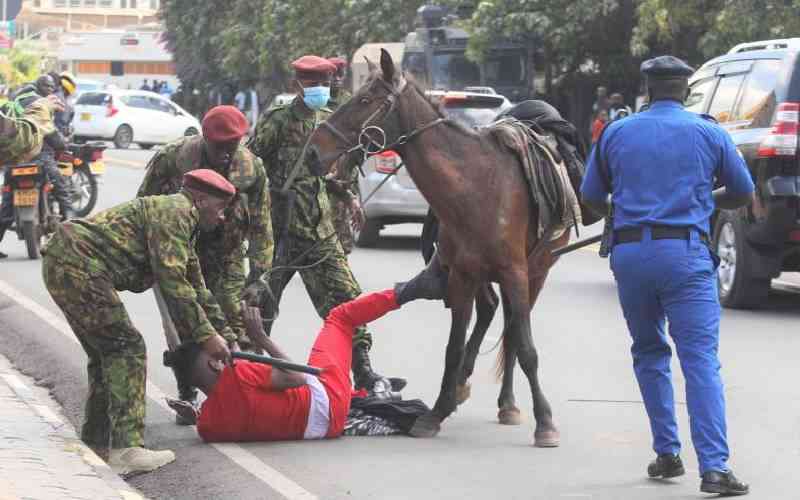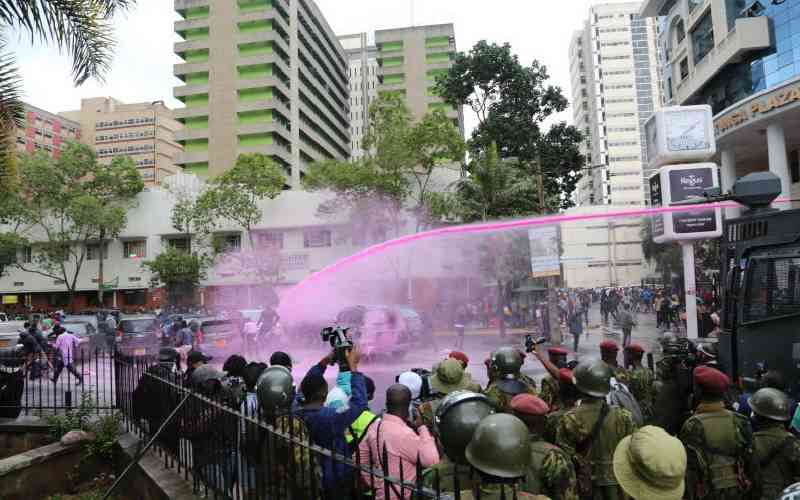After a week of intense protests against one of the most controversial taxation bills of Kenya’s independence, the people and public authorities have to wonder what is going to happen next. Widely understood as a rejection of the Finance Bill 2024, the tensions unmask a systemic problem with public participation, policymaking and policing.
Anti-tax rebellions are not new to Kenyan history. In 1921, patriots in the Luo community formed the Young Kavirondo Association to challenge onerous hut taxes, joblessness, the kipande system and colonialism. The Kavirondo tax rebellion is one of Kenya’s most iconic struggles for human rights and inclusive governance. It is bizarre that over a century later, the Kenyan State faces an almost identical rebellion.
Historical parallels
Swop the British Colonial Office with the International Monetary Fund, compare the hut taxes with the digital, car and everything-of-value-to us taxes and the historical parallels are clear for us all. Like their twentieth-century ancestors, the face of the demonstrations that took place across 19 counties this week is very youthful. They are also digitally empowered, women-led and fearless in the face of the police. Oh, and for some of you reading this, politicians and police commanders as well, they are your adult children.
Attempts to brand them as disaffected and jobless looters fell flat as the protestors remained largely peaceful in their thousands. Police arrested close to 400 protestors on Tuesday and released them without charges. Three were brought to the Milimani High Court but with defective charges that couldn’t be upheld. Thursday saw even larger protests across Nyeri, Nakuru, Kisumu, Uasin Gishu (Eldoret), Isiolo, Kisii, Laikipia (Nanyuki), Kilifi, Garissa, Kiambu (Thika), Kakamega, Nairobi, Meru, Kericho, Kirinyaga, Mombasa, Embu, Machakos and Migori.
At least 115 persons have been arrested across the 19 counties with Eldoret (80) and Nairobi (20) seeing the most arrests. About 200 people were injured in Nairobi alone. Chief Inspector David Karuri Maina tragically lost both his arms when a tear gas canister he was preparing to hurl at protestors exploded in his hands.
Despite statements calling on the police to exercise restraint, the first fatality and #RejectTaxationBill martyr, Rex Kanyike Masai was shot dead in the darkness of Thursday night. It remains to see whether the State will also offer compensation to the family of Rex Masai as they have for David Maina.
The national police command and security agencies find themselves at a crossroads once more. Accelerating the use of lethal force and live bullets, more lives could be lost and the inevitable lawsuits against commanding officers will increase. For the national executive, unlike the cost-of-living maandamano protests in 2023, they do not have familiar faces to deal with. The street leadership is both resolute and leaderless and their demands are evolving by the day. By Irungu Houghton, The Standard







